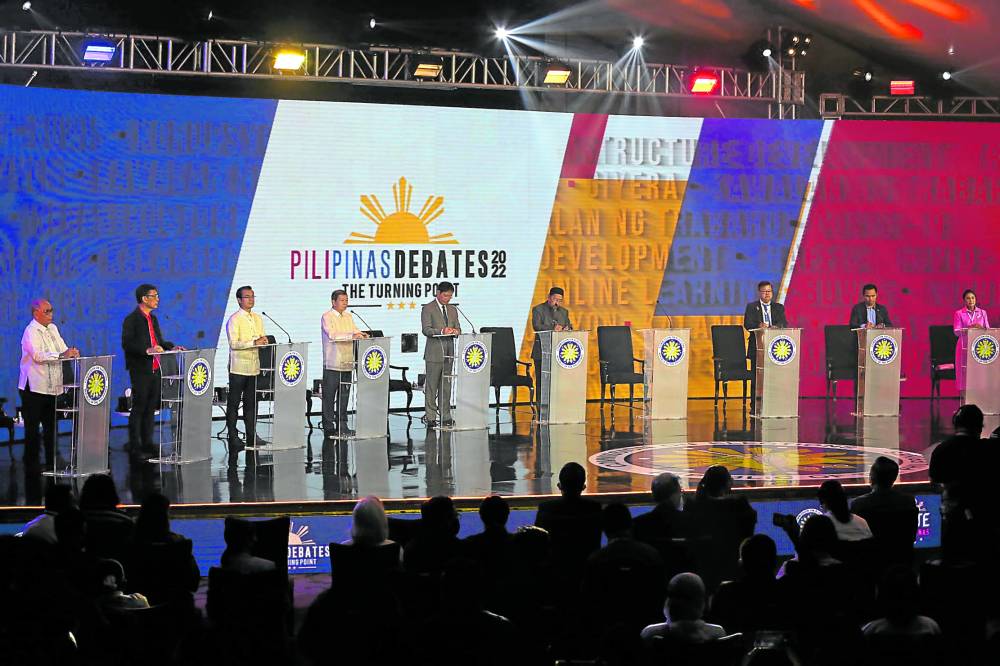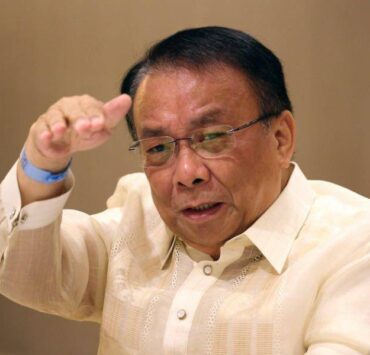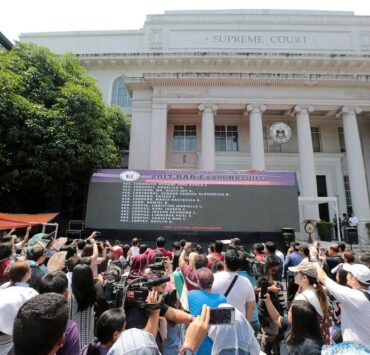No more Comelec debates, but private events pushed

Commission on Elections (Comelec) Chair George Garcia on Friday said the poll body would no longer host debates for senatorial and other candidates in the May 12 elections though the agency could endorse debates conducted by media entities and might compel the candidates to attend them.
“Under our laws, the right thing really—and we noticed that it should not have happened in the previous elections—is that it’s the radio and television stations which should hold the debates under supervision or in coordination with Comelec,” Garcia said in a radio interview on dwPM.
He said the previous Comelec-sponsored debates were contrary to law. He added the media entities planning to hold the debates should be the ones to inform the Comelec so the poll body could endorse the event.
“Now, we are encouraging radio and television stations to hold the debates and we will give the go-signal,” he said.
Asked if the Comelec could compel candidates to attend the endorsed debates, Garcia answered in the affirmative because of the poll body’s constitutional power to issue rules pertaining to elections.
“There’s no law but we can issue a resolution that as obligation of candidates to Comelec, they should comply with Comelec policies. And therefore, if we endorse a debate, we can compel them to attend it because, I believe, it’s a regulation and resolution of the Comelec,” Garcia said.
The regulation is similar to the poll body’s election-related rules such as specifying the size of the ID picture that a candidate must put on his certificate of candidacy, regulating the size of campaign posters, or requiring the registration of social media accounts—violations of which can lead to a candidate’s disqualification from the race.
Garcia explained the Comelec would only intervene in debates conducted by the media to ensure that the activity is “just and fair to everyone.”
“We are willing to issue any resolution just to make sure that all candidates will have equal opportunity whether they have any party or not, whatever their beliefs are. When we issue guidelines, the candidates should comply with them and therefore we can put a corresponding punishment for failure to comply with our policy,” he said.
Importance of debates
Media entities are also required to give opportunity to all candidates, Garcia said.
He added, for example, a senate debate should include all 66 candidates running for senator.
The chair underscored the importance of debates in democratic exercises such as elections.
“In a democracy, our selection [of leaders] is aided by debates wherein we can know a candidate’s thoughts and feelings about issues,” Garcia said.
In the 2022 election season, several candidates, among them President Marcos and Vice President Sara Duterte, opted to boycott debates hosted by the Comelec and media entities.
Meanwhile, Garcia and the Intellectual Property Office of the Philippines (Ipophl) Deputy Director General Nathaniel Arevalo led the signing of a memorandum of agreement to establish mechanisms to protect the output of composers, artists and other media creators that candidates use during the campaign period.
Garcia said the use in the campaign of copyrighted material without permission from the creator was a violation of rules on campaign propaganda and considered an election offense. Ipophl can help Comelec verify copyright status and also assist media creators wishing to press civil and criminal charges in court.

















